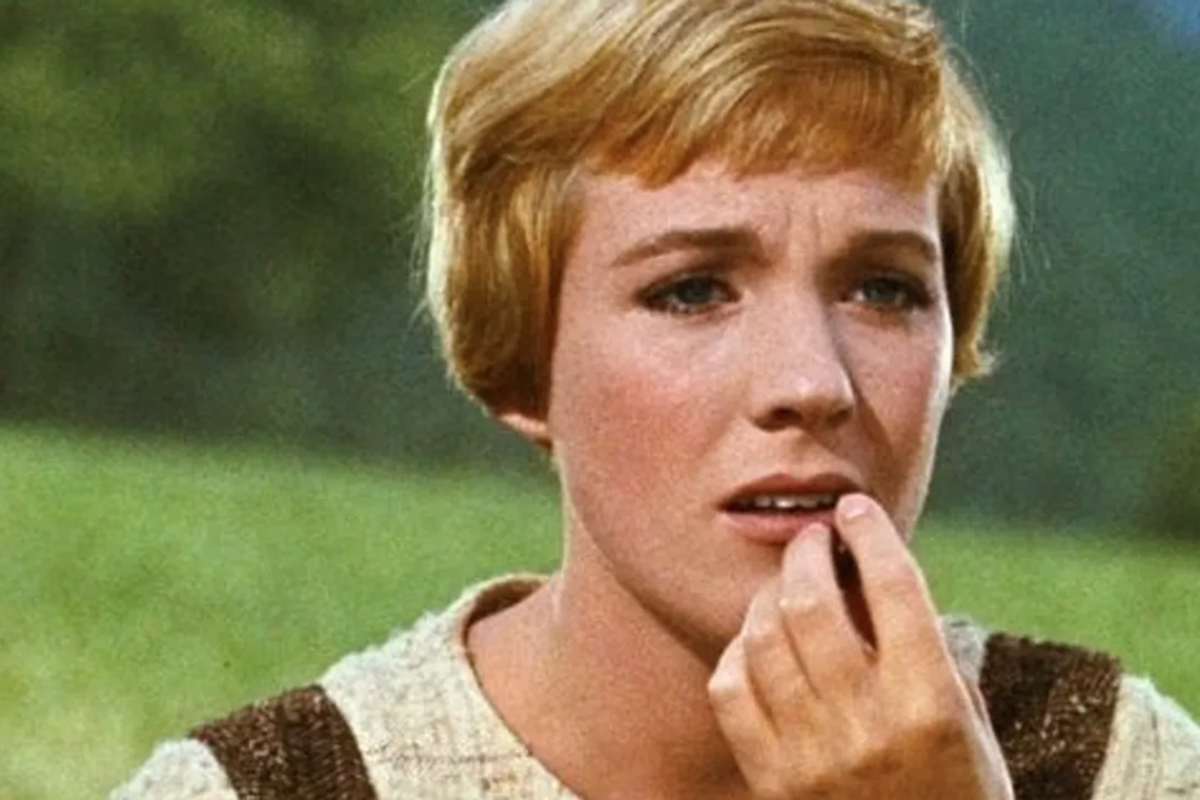Julie Andrews said she literally could "feel the evil" when visiting the Von Trapp house
The story behind the movie might be more interesting than the movie itself.
Julie Andrews in The Sound of Music
Sometimes the story behind the movie is more interesting than the story in the movie.
In her autobiography, Home Work, Julie Andrews shared some of her experiences filming The Sound of Music. Andrews spoke with BuzzFeed News about her book, revealing her thoughts on the actual von Trapp family house. The movie musical, which is based on a section of the real-life Maria von Trapp's book, The Story of the Trapp Family Singers, was shot in a Hollywood studio.
The classic scene of Julie Andrews spinning in a meadow was shot in Bavaria, and the exteriors of the von Trapp house were filmed at a different house entirely.
- YouTube www.youtube.com
Andrews did visit the von Trapp house in Salzburg, Austria later on in her life.
"It wasn't until much later that I happened to visit the real villa where they actually lived," she told BuzzFeed News. During her visit, Andrews said she could "feel the evil that once permeated those walls." The evil Andrews refers to is, of course, the Nazis. "Because after they fled the country, which they had to do, as in the film, [Heinrich] Himmler took over that villa, and the atrocities there were just terrible," she continued.
The story behind the von Trapp house is much darker than what's touched on in the splashy Hollywood musical. The actual von Trapp family lived in the house from 1923 until they fled Austria in 1938. In 1938, the Nazis annexed Austria, making life hard for the singing family. Georg von Trapp refused to fly the Nazi flag on his house, and declined a request to sing at Hilter's birthday party. There was fear their neighbors would spy on them and their children would become brainwashed by Nazi politics. Even though the family was offered fame, they decided to stay true to their principals and leave Austria.

Not one year later, the house was occupied by Nazis. Heinrich Himmler used the house as his summer residence until 1945.
Himmler was the second most powerful man of the Third Reich. Himmler set up and ran the Nazi concentration camps. The house was surrounded by armed guards and barbed wires. A barracks for the SS was built in the garden. Himmler also built the white wall around the house using slave labor. After the wall was completed, he had those who constructed the wall shot. Very monstrous.
Now, the von Trapp house is a more peaceful place. In 1947, the property was purchased from the von Trapp family by the Missionaries of the Precious Blood. In 2008, it opened to the public as a hotel.
- YouTube www.youtube.com
While the house has a heavy history, the previous residents of the property took satisfaction in knowing the von Trapps resisted the Nazi party. "What Himmler did here is a heavy weight on the house," Precious Blood Fr. Andreas Hasenburger, the rector of the Kolleg St. Josef, told the National Catholic Reporter. "But we are also proud to live in the von Trapp house, the house of the man who said no to the Führer."
It takes a lot of guts to stand up for what you believe in, especially when you're pressured to forfeit your integrity. Knowing that the family gave up their life to stay true to their principals makes The Sound of Music so much better.
This article originally appeared five years ago.
- 19 musicals that are not only catchy—they could help with dementia, according to science ›
- Watch Patti LaBelle and Dolly Parton harmonize while 'playing' their acrylic nails together ›
- This hilarious song shows how frustrated scientists can get when you ignore climate change. ›
- Singer's impression of Julie Andrews is so spot on it's spooky - Upworthy ›

